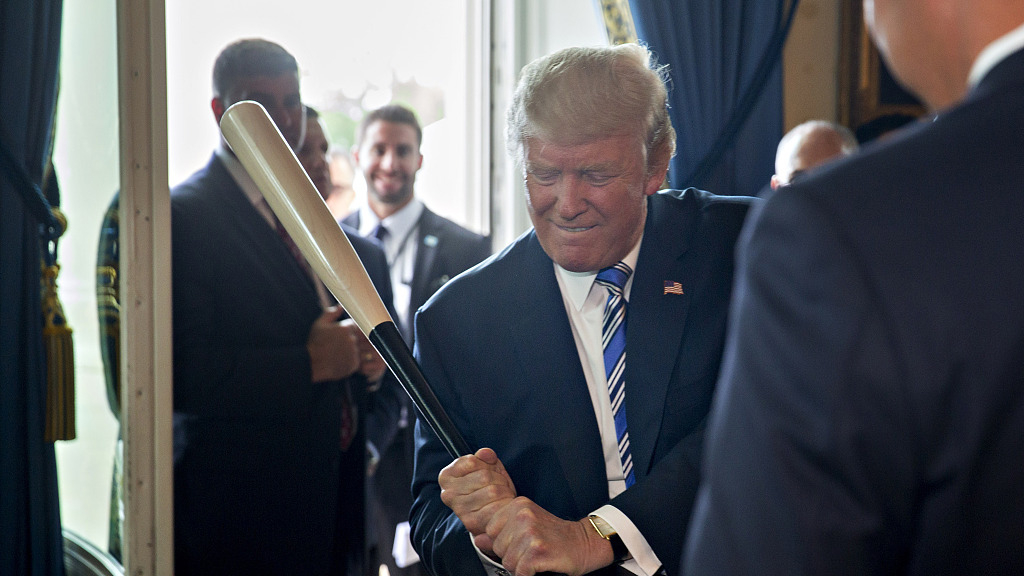

A day after the latest round of trade talks ended without a deal, U.S. President Donald Trump bashed China and said the U.S. would impose 10 percent tariffs on another 300 billion U.S. dollars' worth of Chinese goods starting from September 1. So, has the truce in the year-long trade war between the world's two largest economies just come to an end? What will the impact of the new tariff announcement be? And how can the two sides continue the negotiations as planned, with trust and mutual respect apparently in short supply?
Considering Trump's decision to slap tariffs again, Professor John Gong from the University of International Business and Economics emphasized that this decision is still a tweet at this point and there's also a report from CNBC saying that Trump might change his mind if the negotiations go well. However, Einar Tangen, current affairs commentator, held that "There's no real negotiation… How can you have negotiations with somebody who is completely untrustworthy?"
Tangen added that Trump is timing the tariff-slapping and trying to put maximum pressure on China. September 1 is just a month before the 70th anniversary of China’s National Day, and the 90 days that Trump gave the WTO and Organisation for Economic Co-operation and Development (OECD) is also coinciding with this period. Furthermore, most of the government's top leadership go on vacation for the first two weeks of August.
Immediately after Trump boasted to White House reporters that the U.S. rakes in billions of dollars from China because of his tariffs, Fox News anchor Neil Cavuto issued a fact-check of the president's remarks, directly telling his viewers that Trump is wrong, and Americans are paying for these tariffs directly or indirectly. Professor Gong held that the question about whether American companies and consumers are paying for the tariffs is a very technical economics question and well beyond Trump's understanding. Several professional academic studies unanimously point to the direction that American consumers are paying the tariffs.
Trump claimed in his tweet that "China agreed to buy agricultural products from the U.S. in large quantities, but did not do so." Professor Gong pointed out that the official statement from the Chinese government says China is in the process of initiating purchases of these agricultural products and the U.S. is going to create favorable conditions, but the American official statement doesn't contain the latter part. "At this point, we're engaging in trade negotiations. We're not going to place big orders unconditionally."
As for the impact of China-U.S. trade talks on the prospect of Trump's 2020 campaign, Tangen maintained that whether Trump can get a deal is the biggest deciding factor in the U.S. presidential election 2020. "If Donald Trump is not able to pull off a deal, I think he will be out of office... Most average Americans look in their pocketbook when they vote. If it's less than when they voted last time, they will change. If it's more, they'll keep." He also pointed out that according to the latest data, trade with China has gone down 14 percent while the trade deficit went down by 0.3 percent, which indicates the issue is not about China but the appetite of American consumers for goods that are made overseas.
(If you want to contribute and have specific expertise, please contact us at opinions@cgtn.com.)

Copyright © 2018 CGTN. Beijing ICP prepared NO.16065310-3
Copyright © 2018 CGTN. Beijing ICP prepared NO.16065310-3